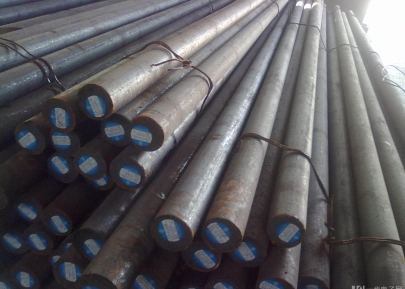Why a Block of Copper is Essential for Modern Manufacturing
In the realm of manufacturing, where innovation and tradition intertwine seamlessly, the prominence of materials reigns supreme. Amongst them, copper—a metal that dances between utility and artistry—holds a vital role. A block of copper, with its radiant hue and exceptional properties, serves as a fulcrum for a multitude of modern manufacturing processes. But, why exactly is this metallic block considered so essential?
The Magic of Copper
Copper is not just a mere element of the periodic table; it's a conduit of efficiency and sustainability. Historically revered for its malleability and conductivity, copper has found its way into the most critical sectors of manufacturing. Its journey through time, from ancient coins to contemporary electronics, reflects a legacy that is both durable and adaptable.
Unveiling the Properties of Copper
- Excellent Conductivity: Copper’s superior electrical and thermal conductivity makes it a staple in electrical engineering.
- Malleability: It can be shaped into various forms without breaking, making it incredibly versatile.
- Corrosion Resistance: Copper’s ability to resist tarnish and corrosion enhances its longevity.
- Antimicrobial Features: Its natural resistance to bacteria makes it suitable for applications in healthcare.
From Block to Base Cap Molding
A block of copper isn’t just a static form; it evolves into intricate components that contribute to modern machinery. One of these components is the base cap molding, essential for the creation of precision tools and devices.
Base Cap Molding: The Unsung Hero
Base cap molding, crafted from the heart of copper, provides structural integrity to various manufacturing setups. Through a process of careful shaping and heating, these molds ensure that every piece produced is not only functional but also possesses a uniqueness that speaks to craftsmanship.
Applications Across Industries
Imagine a world without the sleek functionality of electronics or the reliability of machinery. The role of copper, particularly through blocks used in molding, extends across various industries:
| Industry | Application |
|---|---|
| Electronics | Wiring and circuit boards |
| Automotive | Electrical connectors and components |
| Construction | Pipes and roofing materials |
| Healthcare | Medical tools and devices |
The Aesthetic Appeal of Black and Copper Knife Blocks
In a more artistic expression, the combination of black and copper has captured the hearts of many—especially in kitchenware. A black and copper knife block not only serves its purpose but also stands as a statement piece in culinary environments.
Why Choose a Black and Copper Knife Block?
- **Timeless Design:** Blending modern aesthetics with classic appeal.
- **Durability:** Copper enhances the longevity of kitchen tools.
- **Ease of Maintenance:** A simple wipe is often enough to keep it shining.
Environmental Considerations
As the world shifts towards sustainability, copper shines with its recyclability. Not only is it a vital resource, but its gentle footprint upon the Earth encourages a circular economy.
Challenges in Copper Manufacturing
While copper holds a lauded position, the industry grapples with challenges such as:
- Cost Fluctuations: The price of copper can be volatile due to market conditions.
- Environmental Impact of Mining: Extracting copper comes with significant ecological concerns.
- Supply Chain Issues: Geopolitical factors can affect availability.
FAQs About Copper in Manufacturing
What makes copper a preferred material in manufacturing?
The exceptional conductivity, malleability, and resistance to corrosion make copper indispensable.
Can copper be recycled?
Yes, copper is highly recyclable, which minimizes environmental impacts and supports sustainability.
How does copper compare to other metals in terms of conductivity?
Copper is the second most conductive element, just behind silver, making it very efficient for electrical applications.
The Future of Copper in Manufacturing
As technology advances, the applications of copper continue to expand—be it in innovative electrical applications or eco-friendly practices. The future of copper is intertwined with the future of manufacturing itself.
Conclusion
In a world that’s constantly evolving, the significance of a block of copper becomes even clearer. From the intricate base cap molding processes that create vital components to the aesthetic charm of a black and copper knife block, copper embodies versatility, beauty, and sustenance. It’s not merely a metal; it’s a deep-seated element woven into the very fabric of modern manufacturing.



